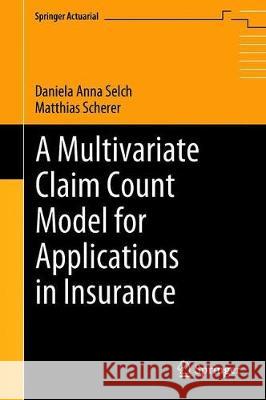A Multivariate Claim Count Model for Applications in Insurance » książka
topmenu
A Multivariate Claim Count Model for Applications in Insurance
ISBN-13: 9783319928678 / Angielski / Twarda / 2018 / 158 str.
Kategorie:
Kategorie BISAC:
Wydawca:
Springer
Seria wydawnicza:
Język:
Angielski
ISBN-13:
9783319928678
Rok wydania:
2018
Wydanie:
2018
Ilość stron:
158
Waga:
0.42 kg
Wymiary:
23.09 x 18.01 x 1.73
Oprawa:
Twarda
Wolumenów:
01











